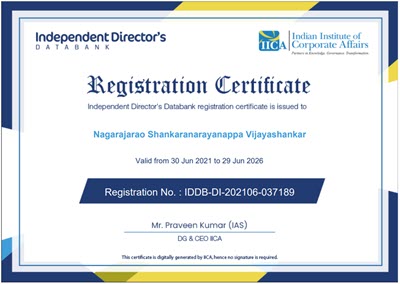For some time now Naavi has been highlighting the dangers of AI and the possibility of an existential threat to the human society because of the Artificial Super Intelligence which can learn from its own observations and correct itself without the assistance of a human developer.
Mr Elon Musk has been the Co-owner of ChatGPT and his company Neuralink is also actively into Neuro Technology both of which in combination could be a real danger to the human race.
The only response that we can think of now is to start introducing some regulation of AI so that the interests of the society are preserved.
UNESCO has suggested a model regulatory guideline and EU has already developed a draft AI Act. Additionally many ethical guidelines are being discussed by interested persons.
Naavi believes that there is a need to seriously work on a draft AI regulation in India which will bring AI development under some sort of control so that the future of humanity is preserved.
The challenges to this are many. We have just gone through a similar problem in “Crypto Currencies” and appear to have finally found a solution. After 10 years of struggle we have decided to preserve the technology of Block Chain and Crypto Currency by accepting the CBDC, a Crypto Currency controlled only by the Central Bank of the country, while all private Crypto Currencies would be considered illegal.
We have a similar requirement in the AI development to ensure that there is a tracking of the development of AI so that private companies or individuals would not secretly weaponize AI.
The architecture for such a regulatory environment needs to be developed. Some thoughts in this regard are as follows.
- The Government needs to be the leader and should create a “Artificial Intelligence Authority of India”. (AIAI).
- AIAI should register any developer or a development Company which develops AI algorithms under a commonly agreed definition of AI.
- We can define AI like the following…
“Artificial Intelligence system is a Computer environment consisting of hardware and/or software that may perform tasks involving automated processing and decision making based on an ability to observe the surroundings , perceive human like experience and improve its decision making through continuous learning”
In due course , we may further refine this definition to cover “Artificial Narrow intelligence” (ANI) which has the ability to work in a pre-defined area only, “Artificial General Intelligence” which is capable of working in many areas and “Artificial Super Intelligence” (ASI) which can not only work in multiple domains but also capable of problem solving and decision making in areas in which it has not been previously trained.
4. All Registered AI developers and Development Companies should be provided with a unique AI developer ID linked to Aadhaar or PAN Card or such other acceptable reference documents.
5. Every set of Source Code falling in the area of AI should include in the source Code the ID of the developer.
6. The AI software code should be out of the IPR or considered as under “Compulsory Licensing” in view of its importance to the existence of human race.
7. Certain pre-defined Source Code identified as “Sensitive” or “Critical” may be mandatorily escrowed with the AIAI.
8. The registered developers may be the persons through whom any ethical principles could be implemented.
There is no doubt that there will be a serious opposition to the above suggestions from the industry as “Curbing” innovation. But when we think deeply, this would be like the mandatory “Driving License” system which the society has adopted.
It is only when we realize the dangers of AI and its ability to take over the world one can appreciate why such regulation may be required before it is too late. It is possible that such a regulation may not be 100% effective and many unauthorized AI algorithms may continue to be developed and used by unscrupulous entities. But just as we try to regulate malware or obscenity though with very little success, it is necessary to have a regulation so that at least the law abiding developers can create their own domain and distinguish from the unregulated domain just as how the Dark Web may c0-exist at present with the Internet.
This effort should start with the formation of a willing community of companies who start a voluntary group of “Law Compliant AI Developers” and gradually expand it into an All India association of Ethical AI Developers.
One of the suggestions Mr Elon Musk has made is that there should be a democratization of AI development. I donot know what exactly is his thought process when he calls for a “Democratization of AI development”. Perhaps it is an extension of the “Open Source development” or like the “Public Block Chain” where there is transparency in the process of development. May be there is some similarity between his his suggestion and what I am trying to suggest above on the lines of “Copyleft” concept.
Views and suggestions are welcome. These are very preliminary thoughts and are floated as seeds for other thoughts to sprout.
Naavi












